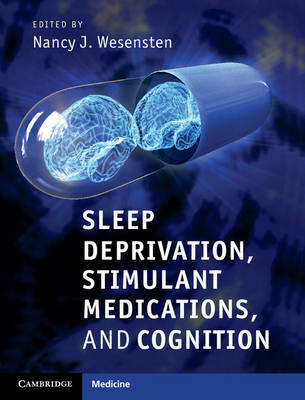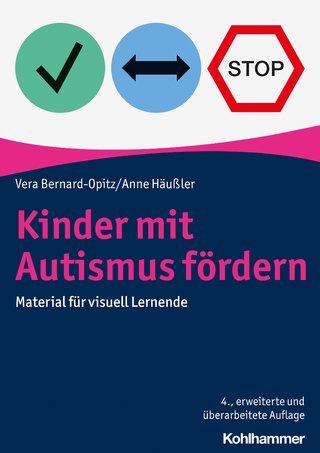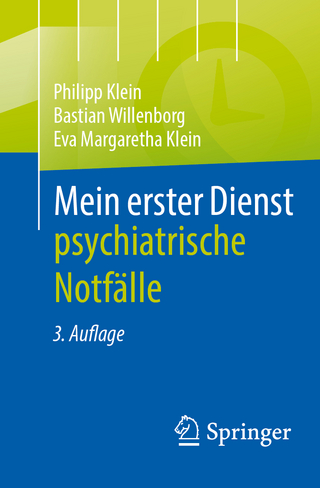
Sleep Deprivation, Stimulant Medications, and Cognition
Cambridge University Press (Verlag)
978-1-107-00409-2 (ISBN)
Sleep Deprivation, Stimulant Medications, and Cognition provides a review, synthesis and analysis of the scientific literature concerning stimulant medications and neurobehavioral performance, with an emphasis on critically evaluating the practical utility of these agents for maintaining cognitive performance and alertness in sleep-deprived (but otherwise healthy) individuals. The book explores the nature of sleep loss-induced cognitive deficits, neurophysiologic basis of these deficits, relative efficacy and limitations of various interventions (including non-pharmacological), and implications for applying these interventions in operational environments (commercial and military). Readers of this volume will gain a working knowledge of: • Mechanisms contributing to sleep loss-induced cognitive deficits • Differential effects of stimulant compounds on various aspects of cognition • Considerations (such as abuse liability) when applying stimulant interventions in operational settings • Current state and future directions for including stimulants in comprehensive fatigue-management strategies. This text is key reading for researchers and trainees in sleep and psychopharmacology.
Nancy J. Wesensten, PhD, is a supervisory psychologist in the Center for Military Psychiatry and Neuroscience, Walter Reed Army Institute of Research, Silver Spring, MD, USA.
Foreword: sustaining cognitive performance: a modern imperative David Dinges; Part I. Basic Mechanisms: Cognitive Performance and Sleep: 1. The true nature of sleep loss-Induced 'neurocognitive performance deficits' – a critical appraisal Thomas J. Balkin; 2. Using fMRI to study cognitive function and its modulation in sleep deprived persons – a selective overview Michael W. L. Chee and Su Mei Lee; 3. The neurochemistry of cognitive impairment following sleep loss Robert E. Strecker and James T. McKenna; 4. The genetic basis of individual vulnerability to sleep loss Phillip J. Quartana and Tracy L. Rupp; Part II. Stimulant Reversal of Cognitive Deficits: 5. Modafinil reversal of cognitive deficits during sleep loss Nancy J. Wesensten; 6. Utility of caffeine: evidence from the laboratory Michael H. Bonnet and Donna L. Arand; 7. Caffeine: mechanism of action, genetics and behavioural studies conducted in task simulators and the field Christina E. Carvey, Lauren A. Thompson, Caroline R. Mahoney and Harris R. Lieberman; 8. Stimulants in models of shift work and shift work disorder Jonathan R. L. Schwartz and Aaron M. Henley; 9. The potential for abuse of stimulants in chronically sleep-restricted populations Emma Childs and Harriet de Wit; 10. Cognition enhancers versus stimulants Megan St Peters and Martin Sarter; 11. Novel pathways for stimulant development: the histaminergic system John J. Renger; 12. Novel pathways for stimulant development: the hypocretin/orexin system Ravi K. Pasumarthi and Thomas S. Kilduff; Part III. Alternatives for Sustaining Cognitive Performance During Sleep Loss: 13. Light exposure for improving cognition during sleep loss and circadian misalignment Kenneth P. Wright, Jr, Tina M. Burke and Mark R. Smith; 14. Nutritional countermeasures for cognitive performance decrements following sleep deprivation Caroline R. Mahoney and Harris R. Lieberman; 15. The role of alertness monitoring in sustaining cognition during sleep loss Melissa M. Mallis and Francine O. James; 16. Sustaining neurobehavioral performance on less sleep: is SWS enhancement the key? Janine M. Hall-Porter and James K. Walsh; Part IV. Summary and Conclusions: 17. Use of stimulants in operational settings: issues and considerations Nicholas Davenport, Cheryl Lowry and Brian Pinkston; 18. Fatigue management: the art of the state Tracy L. Rupp, Nancy J. Wesensten and Thomas J. Balkin.
| Zusatzinfo | 35 Tables, black and white; 11 Plates, color; 13 Halftones, black and white; 50 Line drawings, black and white |
|---|---|
| Verlagsort | Cambridge |
| Sprache | englisch |
| Maße | 192 x 252 mm |
| Gewicht | 780 g |
| Themenwelt | Medizin / Pharmazie ► Medizinische Fachgebiete ► Neurologie |
| Medizin / Pharmazie ► Medizinische Fachgebiete ► Pharmakologie / Pharmakotherapie | |
| ISBN-10 | 1-107-00409-8 / 1107004098 |
| ISBN-13 | 978-1-107-00409-2 / 9781107004092 |
| Zustand | Neuware |
| Haben Sie eine Frage zum Produkt? |
aus dem Bereich


